
Ybor City: Tampa's Historic and Cultural Gem
Welcome to Ybor City, Tampa's vibrant neighborhood known for its rich history, diverse culture, and bustling nightlife. Founded in the late 19th century by Cuban, Spanish, and Italian immigrants, Ybor City quickly became a hub for cigar manufacturing. Today, the neighborhood retains its historic charm with brick-lined streets, old-world architecture, and a lively atmosphere that draws visitors from around the globe. Begin your journey in Ybor City by exploring its many historic landmarks. The Ybor City Museum State Park offers a deep dive into the area's fascinating past, while the iconic Columbia Restaurant, established in 1905, serves up delicious Spanish cuisine in a beautifully preserved setting. For those interested in the arts, the neighborhood is home to numerous galleries and theaters, showcasing local talent and international works alike. As the sun sets, Ybor City transforms into a nightlife hotspot. 7th Avenue is the heart of the action, lined with bars, clubs, and live music venues that cater to every taste. Whether you're in the mood for a laid-back evening in a cozy pub or a night of dancing in a trendy club, Ybor City has something to offer. Don't miss the chance to catch a live flamenco show or enjoy a hand-rolled cigar from one of the local shops. Ybor City is not just about history and nightlife; it's also a food lover's paradise. From Cuban sandwiches to gourmet dining, the neighborhood offers a diverse culinary scene that reflects its multicultural heritage. Be sure to visit the Saturday Market, where you can sample fresh produce, artisanal goods, and local delicacies. With its unique blend of history, culture, and entertainment, Ybor City is a must-visit destination for anyone traveling to Tampa.
Local tips in Ybor City
- Visit the Ybor City Museum State Park early in the day to avoid crowds and get a full experience of the historical exhibits.
- Wear comfortable walking shoes as the neighborhood's brick-lined streets are best explored on foot.
- Check out the local calendar for festivals and events, like the annual Ybor City Cigar Festival and the lively street parades.
- Parking can be limited, so consider using public transportation or ride-sharing services to get around.
- Don't miss the chance to try a Cuban sandwich from one of the local delis; they're a local specialty!
Ybor City: Tampa's Historic and Cultural Gem
Welcome to Ybor City, Tampa's vibrant neighborhood known for its rich history, diverse culture, and bustling nightlife. Founded in the late 19th century by Cuban, Spanish, and Italian immigrants, Ybor City quickly became a hub for cigar manufacturing. Today, the neighborhood retains its historic charm with brick-lined streets, old-world architecture, and a lively atmosphere that draws visitors from around the globe. Begin your journey in Ybor City by exploring its many historic landmarks. The Ybor City Museum State Park offers a deep dive into the area's fascinating past, while the iconic Columbia Restaurant, established in 1905, serves up delicious Spanish cuisine in a beautifully preserved setting. For those interested in the arts, the neighborhood is home to numerous galleries and theaters, showcasing local talent and international works alike. As the sun sets, Ybor City transforms into a nightlife hotspot. 7th Avenue is the heart of the action, lined with bars, clubs, and live music venues that cater to every taste. Whether you're in the mood for a laid-back evening in a cozy pub or a night of dancing in a trendy club, Ybor City has something to offer. Don't miss the chance to catch a live flamenco show or enjoy a hand-rolled cigar from one of the local shops. Ybor City is not just about history and nightlife; it's also a food lover's paradise. From Cuban sandwiches to gourmet dining, the neighborhood offers a diverse culinary scene that reflects its multicultural heritage. Be sure to visit the Saturday Market, where you can sample fresh produce, artisanal goods, and local delicacies. With its unique blend of history, culture, and entertainment, Ybor City is a must-visit destination for anyone traveling to Tampa.
Iconic landmarks you can’t miss
Ybor City Museum State Park
Discover the historical allure of Ybor City Museum State Park, where Tampa's rich immigrant heritage unfolds amidst beautiful gardens and engaging exhibits.
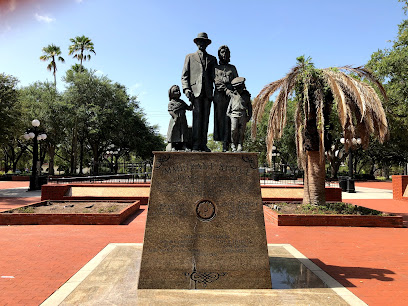
Centennial Park
Explore the lush landscapes and vibrant culture of Centennial Park, a serene escape in Ybor City, Tampa, perfect for relaxation and family outings.
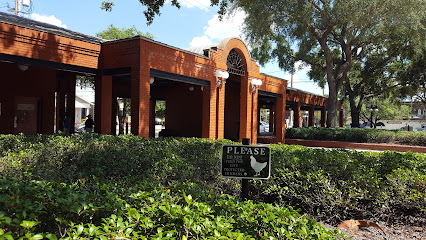
Ybor City Historic District
Discover the rich cultural heritage of Ybor City Historic District in Tampa, where history, dining, and entertainment come together in a vibrant atmosphere.
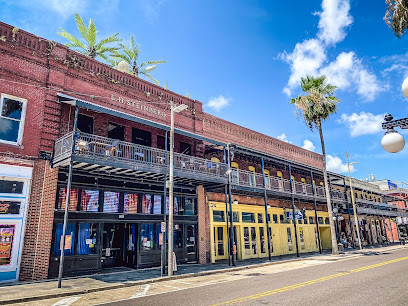
9/11 Fallen Heroes Memorial
A solemn and moving tribute to the heroes and victims of 9/11, located in Tampa's historic Ybor City. We will never forget.
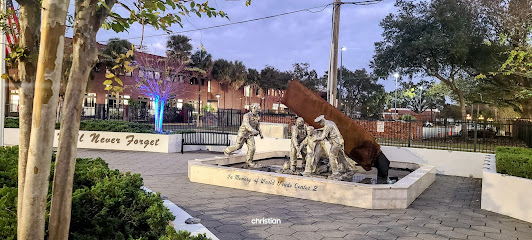
Ybor City Gateway
Enter Tampa's historic Latin Quarter through the Ybor City Gateway, where culture, history, and vibrant streets await exploration.
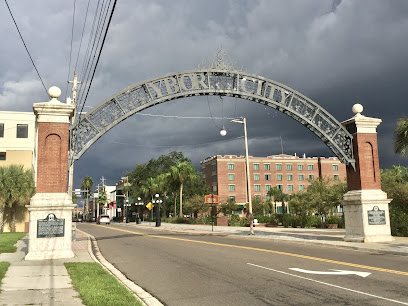
Unmissable attractions to see
Ybor City Museum State Park
Discover Tampa's vibrant past at the Ybor City Museum State Park: Immerse yourself in the cigar-making legacy and multicultural heritage of this National Historic Landmark.
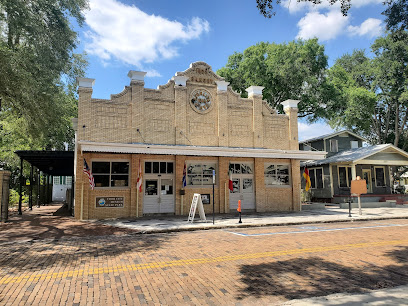
Parque Jose Marti
Step onto Cuban soil in the heart of Tampa's Ybor City at Parque Jose Marti, a tribute to Cuban independence and the enduring bond between Tampa and Cuba, offering a serene escape into history.
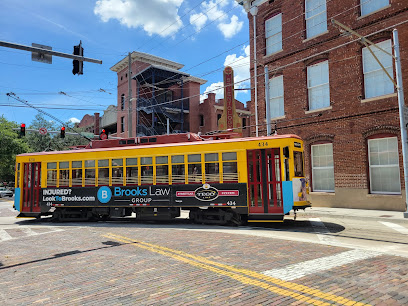
Ybor City Historic District
Explore the vibrant history and culture of Ybor City Historic District in Tampa, Florida, where tradition meets modern-day charm.
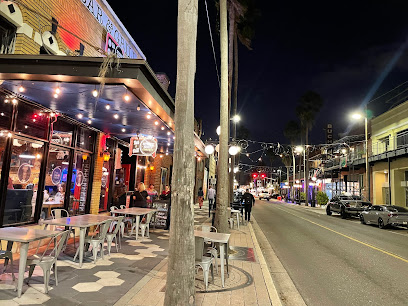
Ybor City Center Fountain
Experience a moment of tranquility at the Ybor City Center Fountain, a modern oasis amidst the historic charm and vibrant culture of Tampa's Latin Quarter, open daily from 8 AM to 12 PM.
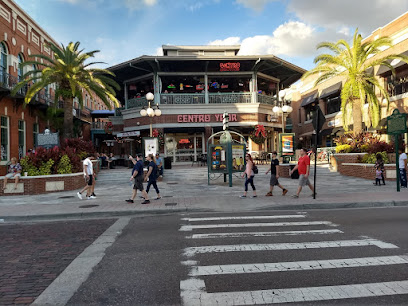
Viva Ybor Mural
Experience the vibrant history and culture of Tampa's Ybor City through this iconic mural, a colorful tribute to its founders, traditions, and enduring spirit.
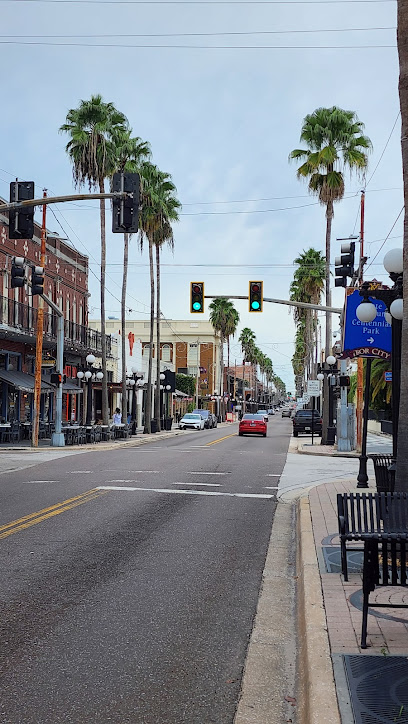
Essential places to dine
Columbia Restaurant
Discover the rich flavors of Spanish and Cuban cuisine at Columbia Restaurant in historic Ybor City.
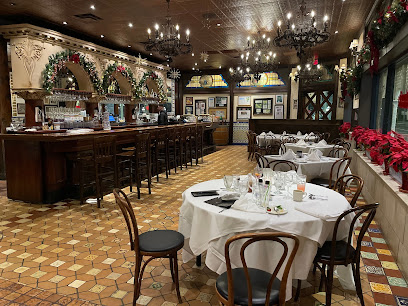
Ulele
Experience the best of American cuisine at Ulele in Tampa Heights—where local flavors meet culinary artistry.
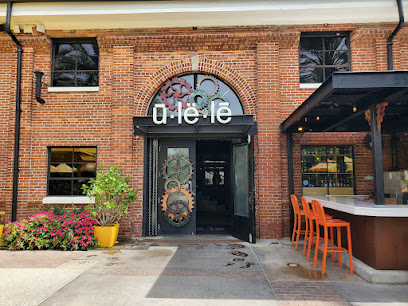
Gaspar's Grotto
Discover Gaspar's Grotto: A vibrant restaurant and bar in Ybor City blending delicious cuisine with live music and historical charm.
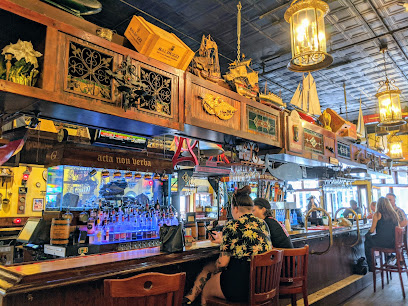
7th + Grove
Discover culinary delights at 7th + Grove in Ybor City - where Southern comfort meets modern dining and vibrant nightlife.
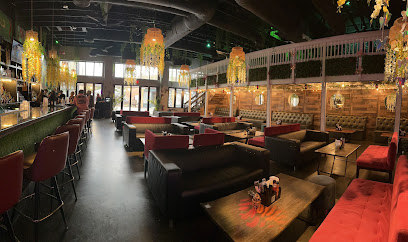
Acropolis Greek Taverna - Ybor City
Discover authentic Greek flavors at Acropolis Greek Taverna in Ybor City—where vibrant atmosphere meets exquisite Mediterranean cuisine.
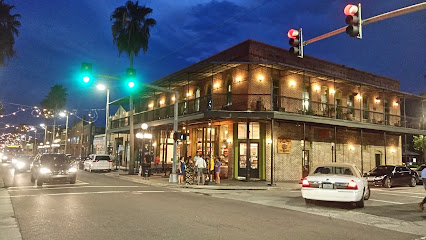
Carmine's Restaurant & Bar - Ybor
Experience exquisite Italian and Latin cuisine at Carmine's Restaurant & Bar in Ybor City – where flavor meets tradition.
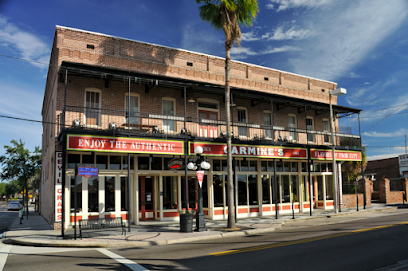
Bernini of Ybor
Experience authentic Italian cuisine in the heart of Ybor City at Bernini of Ybor – where every meal is a celebration.
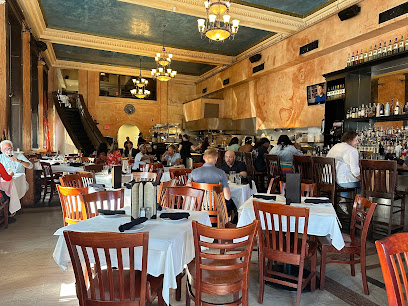
The Bricks
Experience the heart of Ybor City at The Bricks, where authentic American flavors meet vibrant local culture.
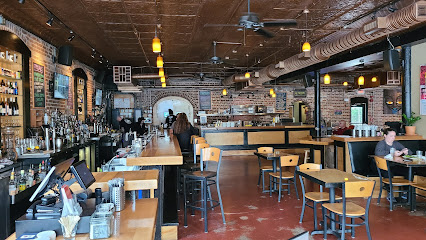
Madame Fortune Dessert + HiFi Parlour
Experience the sweet side of life at Madame Fortune Dessert + HiFi Parlour in Ybor City—where delicious desserts meet vibrant vibes.
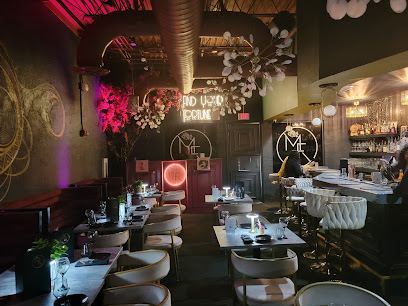
Rosenheim Restaurant
Experience authentic Middle Eastern cuisine at Rosenheim Restaurant, where vibrant flavors meet warm hospitality in Ybor City.
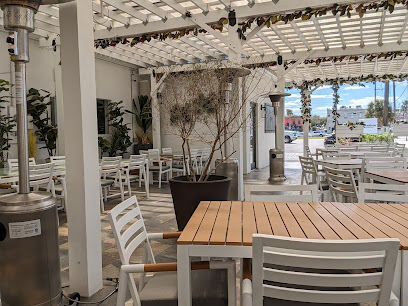
Markets, malls and hidden boutiques
La France
Explore La France in Ybor City, a vintage clothing store filled with unique finds and timeless fashion treasures that inspire your style.
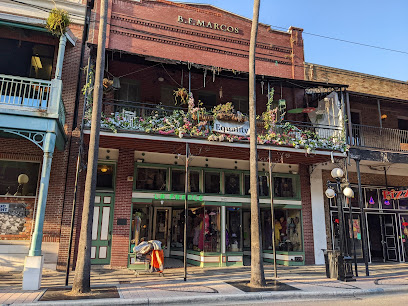
Dysfunctional Grace
Explore the unique antique offerings at Dysfunctional Grace in Ybor City, where every item tells a story and history comes alive.
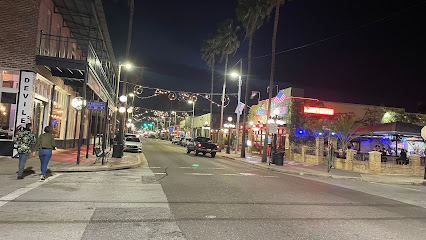
Picker Place Market
Explore Picker Place Market in Ybor City, a vibrant antique market brimming with unique treasures and rich history waiting to be discovered.
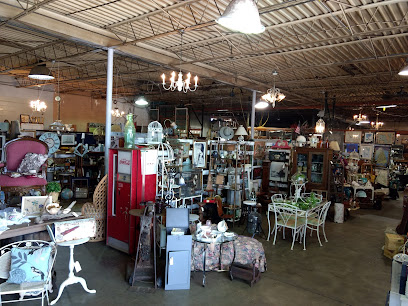
Vintage Roost LLC
Explore Vintage Roost LLC for a treasure trove of antiques and unique finds in the heart of Ybor City, Florida.
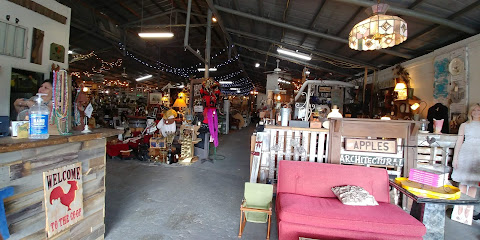
Stained Market Place
Explore Stained Market Place in Ybor City for a unique shopping experience filled with antique furniture and vintage treasures.
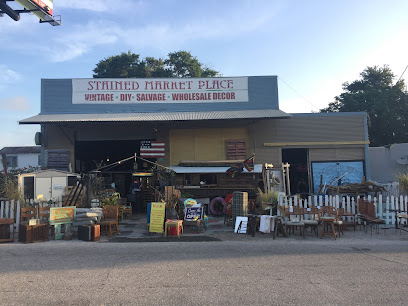
Agora
Discover unique furniture and decor at Agora in Ybor City, where craftsmanship meets eclectic design.
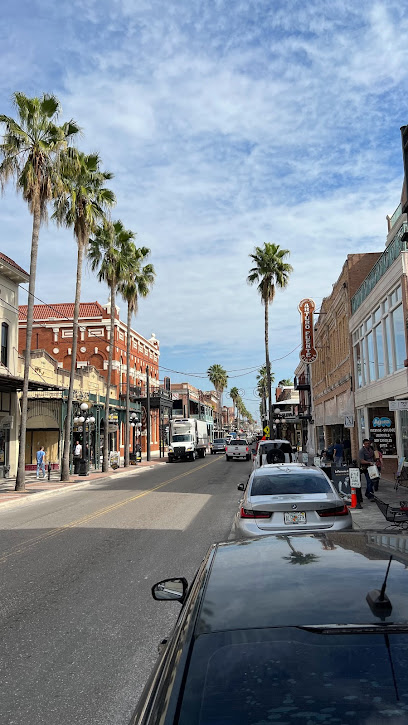
Parachute Gallery
Explore Parachute Gallery in Ybor City for unique gifts and local art that capture the spirit of Tampa's creative landscape.
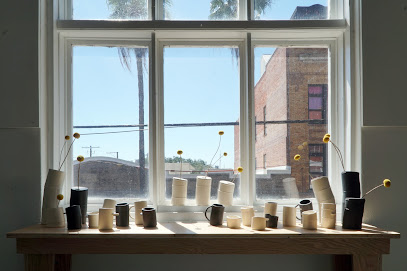
Foreign fitz boutique
Explore Foreign Fitz Boutique in Ybor City, where unique fashion meets local charm in Tampa, Florida.
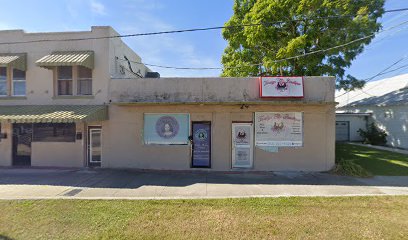
Ybor ybor
Discover unique treasures at Ybor City’s gift shops, where history meets creativity in the heart of Tampa, Florida.
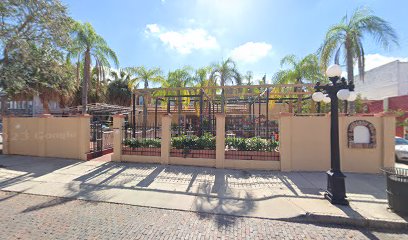
TrueItem.co
Discover unique fashion at TrueItem.co, a vibrant clothing store along Tampa's scenic Riverwalk, blending local flair with trendy styles.

Essential bars & hidden hideouts
Bad Monkey Ybor
Discover the vibrant nightlife at Bad Monkey Ybor, a bar and grill in Ybor City known for its great food, drinks, and sports atmosphere.
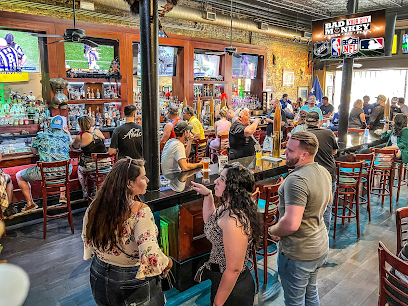
Coyote Ugly Saloon
Dive into the vibrant nightlife of Tampa at Coyote Ugly Saloon, where dancing bartenders and signature cocktails create an unforgettable experience.
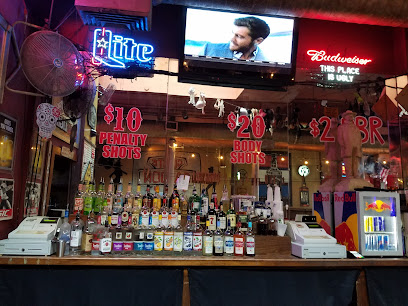
SpookEasy Lounge
Discover the enchanting SpookEasy Lounge in Ybor City, where unique decor meets vibrant nightlife, delicious food, and craft cocktails.
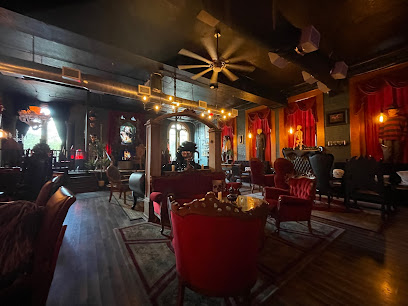
Ybor City Tap House
Experience the best of local brews and live music at Ybor City Tap House, your gateway to Tampa's vibrant nightlife and gastropub delights.
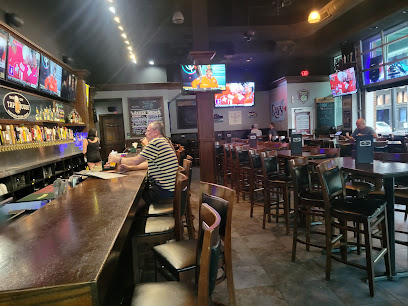
Big Easy Bar
Discover the vibrant essence of New Orleans at Big Easy Bar in Ybor City—where delicious food, lively music, and great company await.
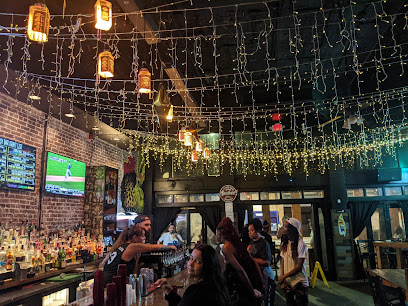
Reservoir Bar
Experience the vibrant punk rock culture at Reservoir Bar in Ybor City, where affordable drinks and live music await every night.
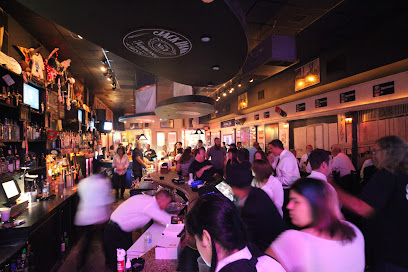
The Dirty Shame
Experience the unique charm of The Dirty Shame, a lively bar in Ybor City offering eclectic brews and a vibrant atmosphere for all visitors.
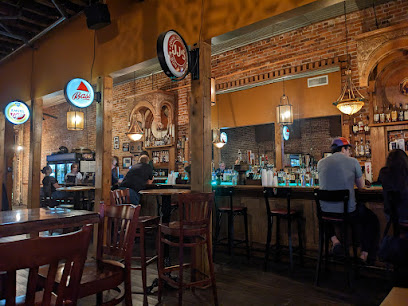
Showbar Ybor
Discover the vibrant nightlife of Tampa at Showbar Ybor, where every night is filled with live music and unforgettable dueling piano performances.
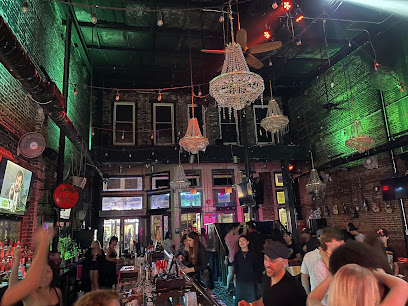
The Copper Shaker Ybor
Experience the art of craft cocktails and delicious gastropub fare at The Copper Shaker Ybor, a must-visit venue in Tampa's historic Ybor City.
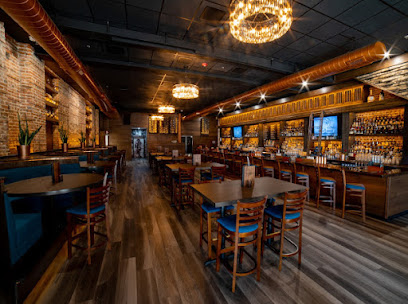
The Catacombs
Discover the lively and mysterious atmosphere of The Catacombs, a unique bar in Ybor City offering creative cocktails and live music.
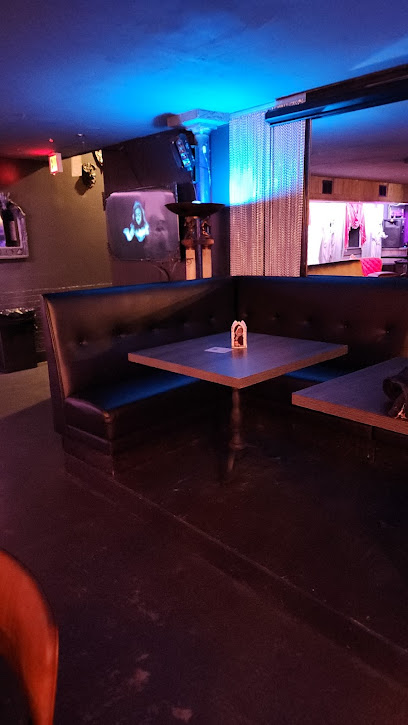
Local Phrases
-
- HelloHola
[oh-la] - GoodbyeAdiós
[ah-dee-ohs] - YesSí
[see] - NoNo
[noh] - Please/You're welcomePor favor/De nada
[por fah-vor/deh nah-dah] - Thank youGracias
[grah-see-ahs] - Excuse me/SorryPerdón/Lo siento
[pair-dohn/loh see-en-toh] - How are you?¿Cómo estás?
[koh-moh ehs-tahs] - Fine. And you?Bien. ¿Y tú?
[bee-en. ee too] - Do you speak English?¿Hablas inglés?
[ah-blahs een-glays] - I don't understandNo entiendo
[noh ehn-tee-ehn-doh]
- HelloHola
-
- I'd like to see the menu, pleaseMe gustaría ver el menú, por favor
[meh goo-stah-ree-ah behr el meh-noo, por fah-vor] - I don't eat meatNo como carne
[noh koh-moh kahr-neh] - Cheers!¡Salud!
[sah-loohd] - I would like to pay, pleaseMe gustaría pagar, por favor
[meh goo-stah-ree-ah pah-gar, por fah-vor]
- I'd like to see the menu, pleaseMe gustaría ver el menú, por favor
-
- Help!¡Ayuda!
[ah-yoo-dah] - Go away!¡Vete!
[veh-teh] - Call the Police!¡Llama a la policía!
[yah-mah ah lah poh-lee-see-ah] - Call a doctor!¡Llama a un doctor!
[yah-mah ah oon dohk-tohr] - I'm lostEstoy perdido/a
[ehs-toy pair-dee-doh/ah] - I'm illEstoy enfermo/a
[ehs-toy ehn-fehr-moh/ah]
- Help!¡Ayuda!
-
- I'd like to buy...Me gustaría comprar...
[meh goo-stah-ree-ah kohm-prahr...] - I'm just lookingSólo estoy mirando
[soh-loh ehs-toy mee-rahn-doh] - How much is it?¿Cuánto cuesta?
[kwan-toh kwehs-tah] - That's too expensiveEs demasiado caro
[ehs deh-mahs-ee-ah-doh kahr-oh] - Can you lower the price?¿Puedes bajar el precio?
[pweh-dehs bah-har el preh-see-oh]
- I'd like to buy...Me gustaría comprar...
-
- What time is it?¿Qué hora es?
[keh oh-rah ehs] - It's one o'clockEs la una
[ehs lah oo-nah] - Half past (10)Media (10)
[meh-dee-ah (deez)] - MorningMañana
[mah-nyah-nah] - AfternoonTarde
[tahr-deh] - EveningNoche
[noh-cheh] - YesterdayAyer
[ah-yehr] - TodayHoy
[oy] - TomorrowMañana
[mah-nyah-nah] - 1Uno
[oo-noh] - 2Dos
[dohs] - 3Tres
[trehs] - 4Cuatro
[kwah-troh] - 5Cinco
[seen-koh] - 6Seis
[says] - 7Siete
[syeh-teh] - 8Ocho
[oh-choh] - 9Nueve
[nweh-veh] - 10Diez
[dyehs]
- What time is it?¿Qué hora es?
-
- Where's a/the...?¿Dónde está el/la...?
[dohn-deh ehs-tah el/lah] - What's the address?¿Cuál es la dirección?
[kwal ehs lah dee-rehk-syohn] - Can you show me (on the map)?¿Puedes mostrarme (en el mapa)?
[pweh-dehs mohs-trar-meh (ehn el mah-pah)] - When's the next (bus)?¿Cuándo es el próximo (autobús)?
[kwan-doh ehs el proh-ksee-moh (ow-toh-booos)] - A ticket (to ....)Un boleto (a ....)
[oon boh-leh-toh (ah)]
- Where's a/the...?¿Dónde está el/la...?
History of Ybor City
-
Ybor City was founded in the 1880s by cigar manufacturer Vicente Ybor, who relocated his cigar business from Key West to Tampa. The establishment of the cigar industry attracted a large influx of immigrant workers, primarily from Cuba, Spain, and Italy, creating a vibrant multicultural community. By the early 1900s, Ybor City became known as the 'Cigar Capital of the World', producing millions of cigars annually.
-
In the early 20th century, Ybor City became a center for labor activism, with the cigar workers forming strong unions. The labor movement played a crucial role in advocating for better working conditions and wages. Strikes and protests marked this period, reflecting the community's fight for workers' rights. The influence of these movements extended beyond Ybor City, impacting labor policies throughout Tampa and the region.
-
The cultural heritage of Ybor City is celebrated through various festivals and events, most notably the Ybor City Fiesta Days and the Gasparilla Pirate Festival. These events showcase the neighborhood's diverse traditions, music, and cuisine, reflecting the rich blend of Cuban, Spanish, and Italian influences. The vibrant atmosphere attracts both locals and tourists, contributing to Tampa's cultural landscape.
-
By the mid-20th century, the cigar industry began to decline due to changing economic conditions and the rise of automated production methods. Ybor City faced significant challenges, including urban decay and population decline. However, efforts in the late 20th century to revitalize the area, including the establishment of the Ybor City Historic District, led to a resurgence in tourism, dining, and nightlife, transforming Ybor City into a cultural hotspot.
-
Today, Ybor City is recognized for its historic architecture, vibrant nightlife, and diverse cultural offerings. The neighborhood features a mix of restaurants, art galleries, and entertainment venues, attracting visitors from around the world. Ybor City's commitment to preserving its historic character while embracing modern development exemplifies the ongoing evolution of this iconic Tampa neighborhood.
Ybor City Essentials
-
Ybor City is easily accessible from other neighborhoods in Tampa. If you are coming from downtown Tampa, you can take the TECO Line Streetcar, which connects you directly to Ybor City. Alternatively, rideshare services like Uber and Lyft are widely available. For those driving, Ybor City is located off Interstate 4, and ample parking is available, though it may be limited during events.
-
Ybor City is pedestrian-friendly, making it easy to explore on foot. The TECO Line Streetcar also provides convenient transport within the area. For cyclists, there are bike lanes and rental options available. Public buses operated by HART serve the surrounding areas, but schedules should be checked in advance for the most efficient travel.
-
Ybor City is generally safe for tourists, but certain areas can have higher crime rates, particularly at night. It is advisable to stay in well-lit areas and be cautious of your belongings. Avoid walking alone in less populated streets after dark, particularly around 7th Avenue and 15th Street. Always stay alert and aware of your surroundings.
-
In case of an emergency, dial 911 for police, fire, or medical assistance. The nearest hospital is Tampa General Hospital, located a short drive away. It's wise to have travel insurance that covers medical emergencies. Local pharmacies are available for minor health issues, and many establishments can assist with emergency contacts.
-
Fashion: Do wear comfortable clothing suitable for the warm climate, and dress appropriately when visiting religious sites. Don't wear overly casual or offensive attire. Religion: Do respect local customs and traditions. If visiting a church, dress modestly. Public Transport: Do be polite to other passengers and give up your seat to those in need. Don't eat or drink on streetcars or buses. Greetings: Do greet locals with a friendly smile. A firm handshake is often appreciated. Eating & Drinking: Do try local Cuban cuisine and enjoy a drink at one of the many bars. Don't overindulge or engage in rowdy behavior, as it may be frowned upon.
-
To experience Ybor City like a local, visit the historic cigar factories and take a guided tour to learn about the area’s rich history. Check out the local events calendar, as Ybor City hosts many festivals and markets throughout the year. Engage with local vendors at the Ybor City Saturday Market for fresh produce and handmade goods. Don’t miss the chance to sample authentic Cuban sandwiches and café con leche at a local café.
Nearby Cities to Ybor City
-
Things To Do in St. Petersburg
-
Things To Do in Clearwater
-
Things To Do in Sarasota
-
Things To Do in Sebring
-
Things To Do in Orlando
-
Things To Do in Ocala
-
Things To Do in Fort Myers
-
Things To Do in Cape Coral
-
Things To Do in Gainesville
-
Things To Do in Daytona Beach
-
Things To Do in Ft. Pierce
-
Things To Do in Stuart
-
Things To Do in St. Augustine
-
Things To Do in Jacksonville
-
Things To Do in Fort Lauderdale













